- Home
- Roger Taylor
Dream Finder Page 40
Dream Finder Read online
Page 40
Though softly spoken, Ryllans’ words impinged on Arwain powerfully. He struggled briefly to find an answer to the Mantynnai’s ruthless logic, but could not.
Instead, he laid his hand on the hand that was holding his arm and gripped it powerfully in acceptance, then he signalled the platoon forward.
They approached the city at a leisurely walk and with the Duke’s pennant well displayed, if a little reluctant to flutter in the still morning air.
‘They’re extending their walls,’ Ryllans said as they drew nearer. He pointed.
Arwain followed his finger and saw the cobwebs of scaffolding blurring the line of the walls. ‘They’re a neutral city, they can do what they want,’ he said with a slight shrug. ‘But it’s not good. The Whendreachi wouldn’t spend money like that if they weren’t very concerned about something.’
They continued in silence until they came to the first gate. It was closed, and a small crowd of people were gathered in front of it, waiting with surly patience for it to be opened. A large burly man sitting on a rock by the side of the gate looked up as Arwain’s platoon arrived. Seeing them, he shook his head wearily and stood up, taking hold of the leading rein of a string of donkeys as he did so.
Muttering to himself, he walked over to a wicket door in the gate and began beating on it with a massive clenched fist.
‘Come on!’ he bellowed, in the unmistakable Whendreachi accent. ‘Get off your lazy backsides in there. I’ve got this lot to deliver, there’s two midwives, three joiners, a ruptured mason and god knows how many other folk out here with a living to earn.’ He banged again. There was some laughter among the crowd at his manner, and voices were raised in support of his plaint.
‘And there’s a fortune-teller who’s beginning to look decidedly worried,’ the man went on, rising to the crowd. He winked at Arwain. ‘And now the posh folks are starting to arrive. That’s how late it is. Shift yourselves!’
Arwain lifted his hands to his face to disguise his amusement at the man’s antics. Ryllans laughed openly.
Suddenly there was an angry rattling of bolts and chains, and the wicket was slammed open noisily. A guard emerged, catching his pike on the lintel and nearly tripping as he struggled to release it. He was quite short and he looked decidedly harassed. He was also unimpressed by the applause that greeted his ungainly arrival.
‘All right, all right. Stop all this row,’ he said in a voice full of command and indignation until it cracked into a squeak.
‘You get this sodding gate open and we’ll stop, Erryk,’ said the burly man. ‘Some of us have got jobs to do, you know. Can’t sit around the guard house brazier all day.’
The guard cleared his throat. ‘It’s not my job to open the gate,’ he said, hoarsely. ‘The gateman’s not turned up. And neither’s the Exac.’
There was a spontaneous cheer from the crowd.
‘You can’t come in without paying your Gate Tax,’ the guard protested.
‘Nothing to do with us, Erryk,’ the man continued. ‘If he’s not here, that’s his problem. If he had an honest job he wouldn’t be so reluctant to get up in the morning and do it.’ He flicked a thumb towards the sun. ‘Gate’s supposed to be open at sun-up, not sun-down. That was the law before taxes were even thought of; part of the Ancient Rights, you know that. Come on, stop messing about, get this gate open.’
The crowd, though good-humoured, grew noisier in support of their impromptu leader, shouting and cheering with increasing vigour. Someone started to bang an iron pot, and others soon followed suit.
The guard dithered for a moment, then with an extravagant gesture of resignation, struggled back through the wicket gate. A moment or two later, after further bumping and rattling, the gate began to swing slowly open. Led by the burly man and his donkeys, the small crowd quickly surged forward into the widening opening. It was a rare event for the Gate Exactor to be absent, and not an opportunity to be missed.
‘Thanks, Erryk,’ the burly man shouted as he disappeared through the gate. He pointed to his donkeys. ‘First egg that one of these lays today is yours.’
The guard drove the gate’s large bolt into its housing with some venom then looked up at the retreating figure. Waving his fist, he shouted something that was too fast and too colloquial for Arwain to understand, though it was patently not complimentary. Without turning, the burly man raised his hand in friendly acknowledgement.
‘And stop calling me Erryk,’ the guard managed irritably, as a parting shot, adding futilely, ‘my name’s . . .’
‘Oi!’
Arwain had dismounted and was approaching the guard as this cry rang out. He started, thinking it was addressed to him.
‘What d’you think you’re doing? You can’t do that,’ the voice continued, laden with disbelief and righteous indignation.
Arwain identified the speaker. It was a short, stout individual, running, with some difficulty, towards the gate, and waving his arms. He was panting heavily when he eventually arrived.
‘Can’t do what?’ the guard said crossly.
‘Open the gate,’ the stout man spluttered. ‘Open the gate. You can’t do that. That’s a gateman’s job. I’ll . . . I’ll have to report this . . .’
‘Report your over-sleeping while you’re at it,’ the guard snapped peevishly. The stout man’s chin came out defiantly, but the guard was not to be gainsaid. He levelled an angry, prodding, finger at the gateman. ‘I had half the countryside outside here, threatening hell and all, because you couldn’t shift out of your bed. What was I supposed to do? I’m responsible directly to the Council for the peace here, you know, not some sodding Guild contractor. If anyone’s reporting anything here, it’s going to be me.’ He was beginning to warm to his subject. ‘And that lazy Exac’s no better. He . . .’
Arwain cleared his throat loudly. ‘Excuse me, gentlemen,’ he said, stepping forward.
The guard stopped and looked up at him.
‘You haven’t heard the last of this,’ the gateman said spitefully, slipping this blow into the sudden silence, before scurrying off, grumbling to himself.
The guard snarled something after him then turned back to Arwain. ‘Yes?’ he said, frowning a Whendrak welcome at this newcomer.
With an effort, Arwain forced himself to remember Aaken’s instructions.
‘I’m Arwain, son of Ibris, Duke of Serenstad,’ he said formally. ‘I have letters patent confirming this, and matters that I need to discuss with the leaders of your city. May I have your permission to enter with my escort?’
The guard’s mouth slowly sagged open during this speech and, when it was finished, he began to execute a small, agitated dance, shifting his weight from foot to foot, his pike from hand to hand, and turning his head from side to side as if searching for help or escape.
He accompanied this dance with rhythmic stutterings that eventually merged into fairly coherent speech indicating that he didn’t know what to do.
And his officer was late . . . and . . . the Exactor . . . and the gateman . . . and he shouldn’t be doing this duty really . . . he was supposed to be off sick . . .
He was rescued by the appearance of another guard; the tardy officer, Arwain judged. With a nod the new arrival dismissed the floundering guard into a nearby sentry post, then turned to Arwain inquiringly, at the same time casting a rapid glance over his escort.
Arwain repeated his introduction and request to enter the city.
This time he was successful.
Shortly afterwards, while the rest of the platoon waited in the forecourt of the Council’s Meeting House, Arwain and Ryllans were being escorted by a group of guards into the presence of Whendrak’s Maeran, the leader of the city’s council, and its most powerful citizen.
As was allowed under the treaty, both men were still armed, but the waiting platoon had been obliged to leave its weapons at the city’s gate.
Somewhat to Arwain’s surprise, the Maeran was quite a short, inconsequential-looking man who exuded
none of the power that Arwain had come to expect from leaders of men. Indeed his first impression was that the man looked more like a successful merchant than a politician.
‘Sit down, gentlemen,’ he said affably, indicating two chairs. Arwain noted that they faced the window, while the Maeran sat facing them with his back to it. He began to reconsider his first impression of the man.
He bowed. ‘I have letters patent here for your inspection, Honoured Maeran,’ he said, before he sat down. As he pulled out the documents, a large guard quietly appeared in front of him, his hand extended to receive them.
‘They’ll not be necessary, Lord Arwain,’ the Maeran said, giving the guard a reassuring nod. ‘I recognize you well enough. And this, if memory serves me right, is Commander Ryllans of the Duke’s Mantynnai, seconded to your own personal bodyguard.’
Arwain’s surprise showed.
The Maeran smiled. ‘I’ve been to Serenstad many times, Lord,’ he said. ‘I’m well acquainted with the city, the palace, and, at least by sight, your father, yourself and your brothers.’
Arwain looked disconcerted. ‘Honoured Maeran. I’m afraid I’ve no recollection of a visit by Whendreachi dignitaries ever,’ he said, awkwardly.
The Maeran made a conciliatory gesture. ‘Please, my title’s a little cumbersome. My name’s Haynar. I’m just a humble merchant,’ he said. ‘I go to Serenstad and many other places simply on matters of trade and business.’ He nodded to himself. ‘It’s a marvellous, bustling place. Full of vigour and opportunities, for those who can seize them. Besides, formal receptions aren’t to my taste, if I’m honest about it.’ Then he shrugged. ‘And as a neutral city, we like to avoid any actions that could be construed, however wrongly, as being partisan.’
‘Do you travel also to Bethlar?’ Arwain risked.
‘Oh yes,’ came the unhesitating reply. ‘Though not as much. They do precious little in the way of trading and they aren’t the happiest of people to be among.’ He laughed. ‘I don’t suppose I should say that really in view of the fact that I’m at least three-quarters Bethlarii myself.’ The man’s informality and joviality were infectious, but Arwain carefully avoided relaxing too much. He has seen his father use precisely the same technique to lure information gently from some unsuspecting individual.
‘Anyway,’ Haynar continued. ‘I’ve sprung my little surprise, now perhaps you could spring yours.’
‘I have nothing to spring, I hope, sir,’ Arwain said, blandly. ‘I was asked to come here by my father to seek information.’ Briefly he outlined the message that the Bethlarii envoy had brought to Serenstad.
As he spoke, Haynar began to tap his foot agitatedly.
‘This is appalling,’ he burst out, when Arwain had finished. He jabbed his forefinger into the arm of his chair. ‘We won’t tolerate it. Never again will we allow ourselves to be used as some kind of a pawn in the eternal games that Bethlar and Serenstad play,’ he said fiercely, now very much a leader of men.
Arwain was taken aback. ‘We play no game, sir,’ he said earnestly. ‘You said yourself, our city is a marvellous place, bustling with vigour and opportunity. The only opportunities in war are death and survival, and it was war that the Bethlarii envoy spoke of as a result of what was happening here. If you know Serenstad and its people at all, you know that we seek no war. We’ll fight if we have to, but only if we have to, and with every reluctance. That’s why I’m here, almost within a day of hearing them, to tell you of the Bethlarii’s words and to ask you what truth lies in them, if any.’
Haynar’s eyes narrowed. ‘Let’s not be naive, Lord,’ he said. ‘There are other opportunities in war. Your brother’s factories forge weapons as well as ploughshares and coach wheels. And he’s a wild man. War might well suit many of his ends. And you’ve more than a few problems with some of your people that a war might judiciously alleviate.’
Arwain felt anger flare up inside him. Desperately he forced the image of his father into his mind; his father sitting calmly while the Bethlarii envoy had publicly insulted him. Sitting calmly and prevailing.
Surreptitiously he took a deep breath and released it slowly.
‘I can’t deny that there’s a considerable element of truth in what you say, sir,’ he said, as quietly as he could manage, though it made his tightened jaw ache. ‘But if you feel that is the predominant element, then I must return to my father and confess that I have failed in my mission here, and advise him to send others, perhaps better suited to diplomacy.’
Haynar put his hand to his mouth casually, hiding further his already shaded face. He did not speak.
Arwain made to rise, but Haynar gently motioned him to remain seated. After a long pause, he stood up and walked over to the window.
‘Did you notice the work on our walls as you arrived?’ he said, almost absently, after a further pause.
‘Yes.’
‘Expensive,’ Haynar said, shaking his head. ‘And wasteful. Time, effort, resources. All could be better spent. But we intend to emulate your father, Lord. We intend to be strong.’ He turned to look at Arwain. ‘Neutral,’ he insisted, raising a hand in emphasis. ‘But strong, resolute. Not aggressive.’ He gave a short, grim laugh. ‘The last thing we want is control over others. We’re a people shaped through countless generations by the warfare of others and we intend to use the peace that your father began to become a third force in the land. A force that will bind us, Bethlar, Serenstad, all the cities and towns, with a myriad of tiny bonds of trade, trust and blood, so complex and intricate that war will cease to exist as a practical alternative in solving disputes.’
Some merchant! Arwain thought.
‘I commend you,’ he said. ‘As would my father, if you would not consider such a commendation to be demeaning.’
Haynar returned to his chair. ‘Wouldn’t your father be concerned that such a third power might combine with the Bethlarii to form an army that could take Serenstad’s dominions from it as from a child, and then finally sweep the city itself aside?’
Arwain thought for a moment. ‘He would consider it, I’m sure,’ he said, with a slight smile. ‘And he would watch, and listen. Which is no more than he does now. And should he see such a development beginning to occur, then he would ask you about it, probably very straightforwardly. Just as I asked you about the truth in the Bethlarii envoy’s claims about the treatment of those they call their people here.’
Haynar raised his emphatic finger again. ‘There are no Bethlarii people here. You know that,’ he said. ‘Nor Serens. There are only Whendreachi. What I just said: the work to the walls, the intention to be strong – this is their will.’
‘Your vision though, Honoured Maeran?’ Arwain said.
Haynar nodded. ‘Possibly,’ he replied. ‘But their will nonetheless.’
‘Then what did the envoy mean?’ Arwain asked simply. ‘Was he lying? And if so, to what end?’
Haynar leaned forward and frowned. ‘He was and he wasn’t,’ he replied. ‘And the end they seek is war, without a doubt, which is why we’re accelerating the work on our defences.’ He looked straight at Arwain. ‘But as to why . . .’
He gave a disowning shrug.
‘I don’t understand,’ Arwain said. ‘How can he lie and not lie?’
Haynar pulled a rueful face. ‘The same way that I just did,’ he said. ‘It’s true there are no native Bethlarii and Serens here, except perhaps for a few who’ve come here following marriage. But adherence to your two states brings constant trouble to our streets.’ He began to gesticulate as he spoke. ‘Like Serenstad, we have our factions, Guilds, political parties, various cartels of influential people, businesses, malcontents. And where there is such variety there is inevitably confusion, inefficiency, mistrust and, sadly, corruption; and progress towards better times is at best . . . uneven. Then, the ignorant become impatient. They weave flights of fancy about the possibility of some simple sovereign remedy for all ills being at hand. Some will follow an eloquent and persuasive lead
er. Others will follow the holy writing of some confounded god or other. They come and go leaving varying amounts of emotional debris behind them, but, at the moment, we are suffering badly from those who, like me, are largely Bethlarii by blood, but who, unlike me, take an over-weaning pride in it and imagine that a return to Bethlarii puritanism and . . . harsh warrior training . . . will bring about a new age of prosperity and dignity.’
Arwain nodded. ‘As you say, troublesome factions are not uncommon in Serenstad, too,’ he said. ‘In what way are these people causing special problems?’
Haynar leaned back. ‘They’re violent,’ he said bluntly. ‘Very violent. They march through the streets intimidating people, they disrupt Council meetings, Guild meetings, they attack people whom they consider to be “too Serens”. And when we take action against them, they send messages off to Bethlar saying we’re victimizing them.’
‘And has Bethlar replied?’ Arwain asked.
Haynar looked at him and then at a large, old-fashioned time-piece hanging on the wall. ‘Come with me,’ he said. ‘There’s an emergency Council meeting in about an hour. I think you’ll find it interesting and informative.’
* * * *
The Council Chamber was smaller than Arwain had imagined, being used to the large Sened Hall and the even larger hall of the Gythrin-Dy. Nonetheless, it was impressive, with semicircular rows of seats laid out in tiers raking gently down to a raised platform at one end of the hall. The walls were covered with intricately carved wooden panels showing significant scenes from Whendrak’s history but, as they were led in, both Arwain and Ryllans found their eyes drawn inexorably upwards. Instead of the smoothly polished wooden beams and plastered ceilings that would grace such a hall in Serenstad and most other cities, the ceiling seemed to grow naturally out of the wall panels and consisted of a complex, interwoven web of tree branches. They were of every conceivable girth, and they rambled their twisting way across the hall and up into an impenetrable darkness without any semblance of regularity of pattern.

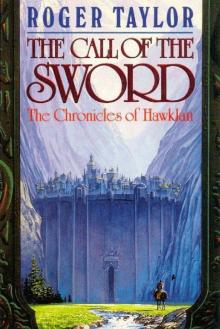 The call of the sword tcoh-1
The call of the sword tcoh-1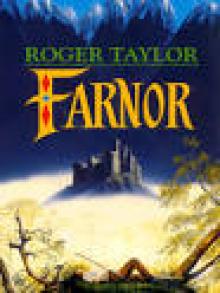 Farnor
Farnor Into Narsindal
Into Narsindal Valderen ft-2
Valderen ft-2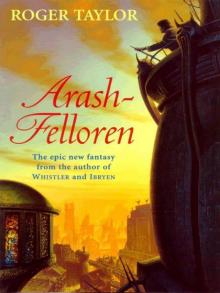 Arash-Felloren
Arash-Felloren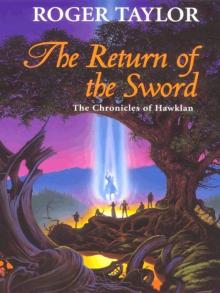 The Return of the Sword tcoh-5
The Return of the Sword tcoh-5![Ibryen [A sequel to the Chronicles of Hawklan] Read online](http://i1.bookreadfree.com/i1/03/26/ibryen_a_sequel_to_the_chronicles_of_hawklan_preview.jpg) Ibryen [A sequel to the Chronicles of Hawklan]
Ibryen [A sequel to the Chronicles of Hawklan]![The Call of the Sword [Book One of The Chronicles of Hawklan] Read online](http://i1.bookreadfree.com/i/03/24/the_call_of_the_sword_book_one_of_the_chronicles_of_hawklan_preview.jpg) The Call of the Sword [Book One of The Chronicles of Hawklan]
The Call of the Sword [Book One of The Chronicles of Hawklan]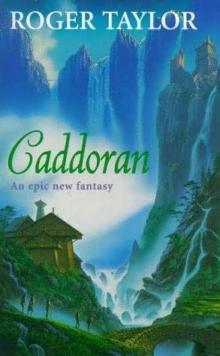 Caddoran
Caddoran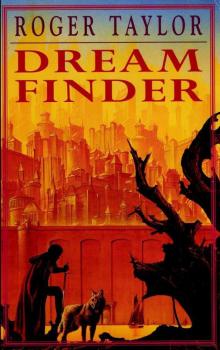 Dream Finder
Dream Finder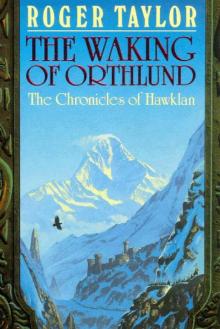 The Waking of Orthlund
The Waking of Orthlund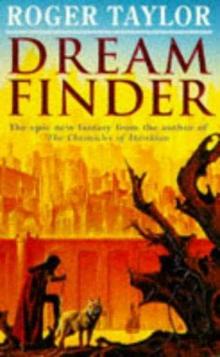 Dream Finder cohs-1
Dream Finder cohs-1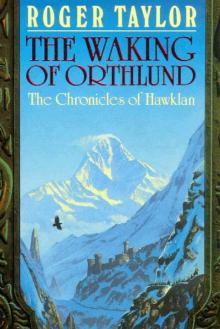 The waking of Orthlund tcoh-3
The waking of Orthlund tcoh-3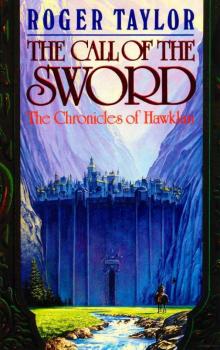 The Call of the Sword
The Call of the Sword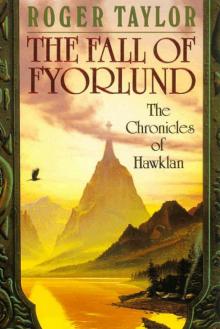 The fall of Fyorlund tcoh-2
The fall of Fyorlund tcoh-2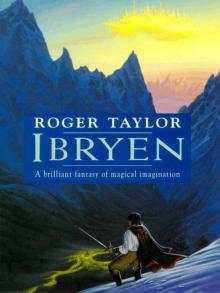 Ibryen
Ibryen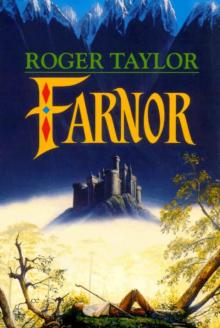 Farnor ft-1
Farnor ft-1 The Return of the Sword
The Return of the Sword![Into Narsindal [Book Four of The Chronicles of Hawklan] Read online](http://i1.bookreadfree.com/i2/04/06/into_narsindal_book_four_of_the_chronicles_of_hawklan_preview.jpg) Into Narsindal [Book Four of The Chronicles of Hawklan]
Into Narsindal [Book Four of The Chronicles of Hawklan]![Valderen [The Second Part of Farnor's Tale] Read online](http://i1.bookreadfree.com/i2/04/05/valderen_the_second_part_of_farnors_tale_preview.jpg) Valderen [The Second Part of Farnor's Tale]
Valderen [The Second Part of Farnor's Tale]![The Fall of Fyorlund [Book Two of The Chronicles of Hawklan] Read online](http://i1.bookreadfree.com/i2/04/08/the_fall_of_fyorlund_book_two_of_the_chronicles_of_hawklan_preview.jpg) The Fall of Fyorlund [Book Two of The Chronicles of Hawklan]
The Fall of Fyorlund [Book Two of The Chronicles of Hawklan]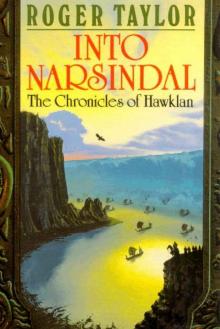 Into Narsindal tcoh-4
Into Narsindal tcoh-4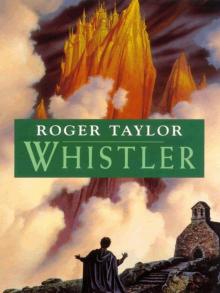 Whistler
Whistler![Whistler [A sequel to The Chronicles of Hawklan] Read online](http://i1.bookreadfree.com/i2/04/12/whistler_a_sequel_to_the_chronicles_of_hawklan_preview.jpg) Whistler [A sequel to The Chronicles of Hawklan]
Whistler [A sequel to The Chronicles of Hawklan]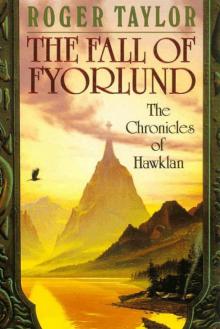 The Fall of Fyorlund
The Fall of Fyorlund![The Waking of Orthlund [Book Three of The Chronicles of Hawklan] Read online](http://i1.bookreadfree.com/i2/04/11/the_waking_of_orthlund_book_three_of_the_chronicles_of_hawklan_preview.jpg) The Waking of Orthlund [Book Three of The Chronicles of Hawklan]
The Waking of Orthlund [Book Three of The Chronicles of Hawklan]